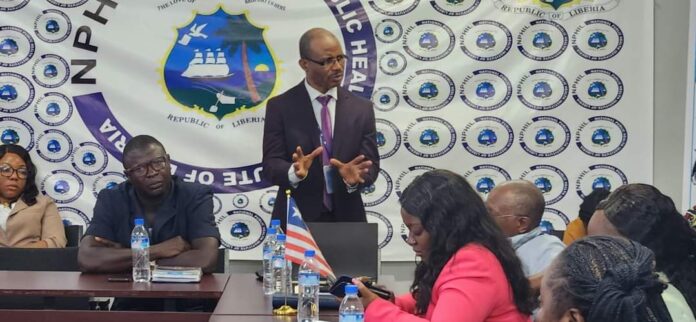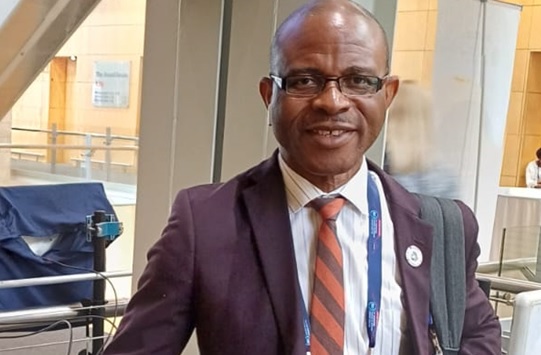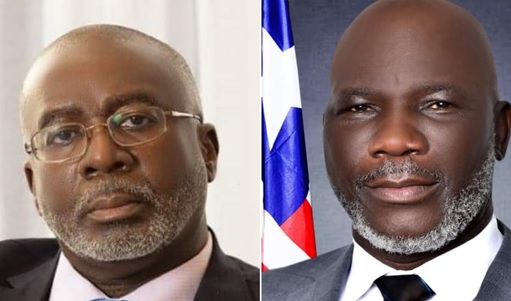MONROVIA, LIBERIA – Dr. Dougbeh Chris Nyan, the Director-General of the National Public Health Institute of Liberia (NPHIL), took to social media on Sunday, December 8, 2024, to reassure the Liberian public amidst growing concerns about a suspected case of Viral Hemorrhagic Fever (VHF) in neighboring Sierra Leone. In a Facebook post that read, “Stay Calm! Do Not Panic!”, Dr. Nyan sought to alleviate fears while emphasizing the importance of vigilance and public health safety.
The post came after reports of a suspected VHF case and a subsequent death in Sierra Leone, prompting heightened vigilance along Liberia’s borders. Dr. Nyan revealed that NPHIL had activated its Port Health and Epidemiological surveillance systems along major border crossing points in the northwest of Liberia. These enhanced measures, initiated since the previous week, aim to prevent any possible outbreak of the deadly virus.
“We are closely monitoring the situation in Sierra Leone, and our surveillance measures are robust,” Dr. Nyan wrote, underscoring the collaborative efforts between Liberia and Sierra Leone to tackle the potential threat. He shared that he had been in direct communication with Dr. Foday Sahr, Executive Director of Sierra Leone’s National Public Health Agency (NPHA), to ensure a joint approach to managing the situation and preventing any spread across borders.
The suspected case of VHF in Sierra Leone raised alarms throughout the region, and Dr. Nyan’s statement reflected a growing urgency in the collective response. According to Dr. Sahr, the test results for the suspected case were “indeterminate,” and several individuals who had been in contact with the deceased were undergoing a 21-day observation period. Despite the uncertainty of the test results, both NPHIL and NPHA have committed to strengthening regional surveillance and cooperation to address the potential public health threat.
In his letter to Dr. Sahr, Dr. Nyan emphasized the commitment of NPHIL to regional public health security and reaffirmed Liberia’s dedication to preventing the spread of the virus. He also requested additional information on the contacts identified in the Sierra Leonean case and any further test results, particularly from the 34 Military Hospital, a critical health facility in Sierra Leone.
Dr. Nyan’s call for calm was accompanied by important public health advice. He urged Liberians to observe regular infection control measures, including frequent handwashing, avoiding physical contact with suspected cases, and seeking medical attention at the nearest health facility if any symptoms of viral hemorrhagic fever emerge. NPHIL has been proactive in ensuring that Liberians understand the importance of these precautions as the country remains on alert.
This collaboration between the two nations highlights the importance of cross-border communication in safeguarding public health. As diseases like VHF do not respect borders, both Dr. Nyan and Dr. Sahr have emphasized the need for timely information sharing and coordinated action to prevent the spread of infectious diseases in the region.
As Liberia continues to strengthen its health infrastructure and response mechanisms, Dr. Nyan’s leadership in public health is increasingly seen as vital in tackling emerging infectious diseases. His efforts, particularly in innovative diagnostic solutions and regional cooperation, stress the critical role that Liberia plays in enhancing health security across West Africa.
While the situation remains under close monitoring, Dr. Nyan’s statement reassures the public that NPHIL is actively addressing the threat. The Director-General’s emphasis on staying calm and following preventive measures is a reminder of the importance of collective responsibility in maintaining public health.







